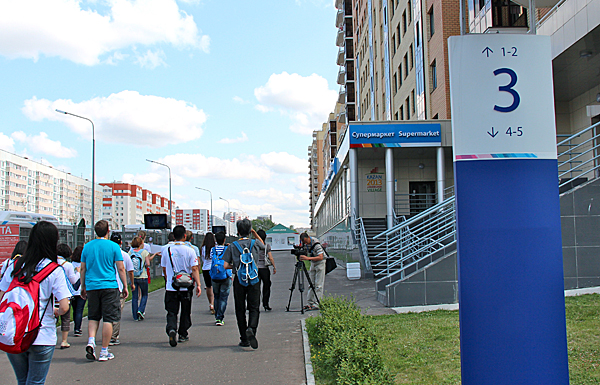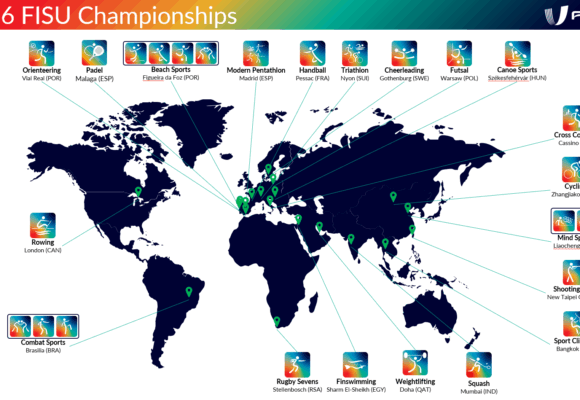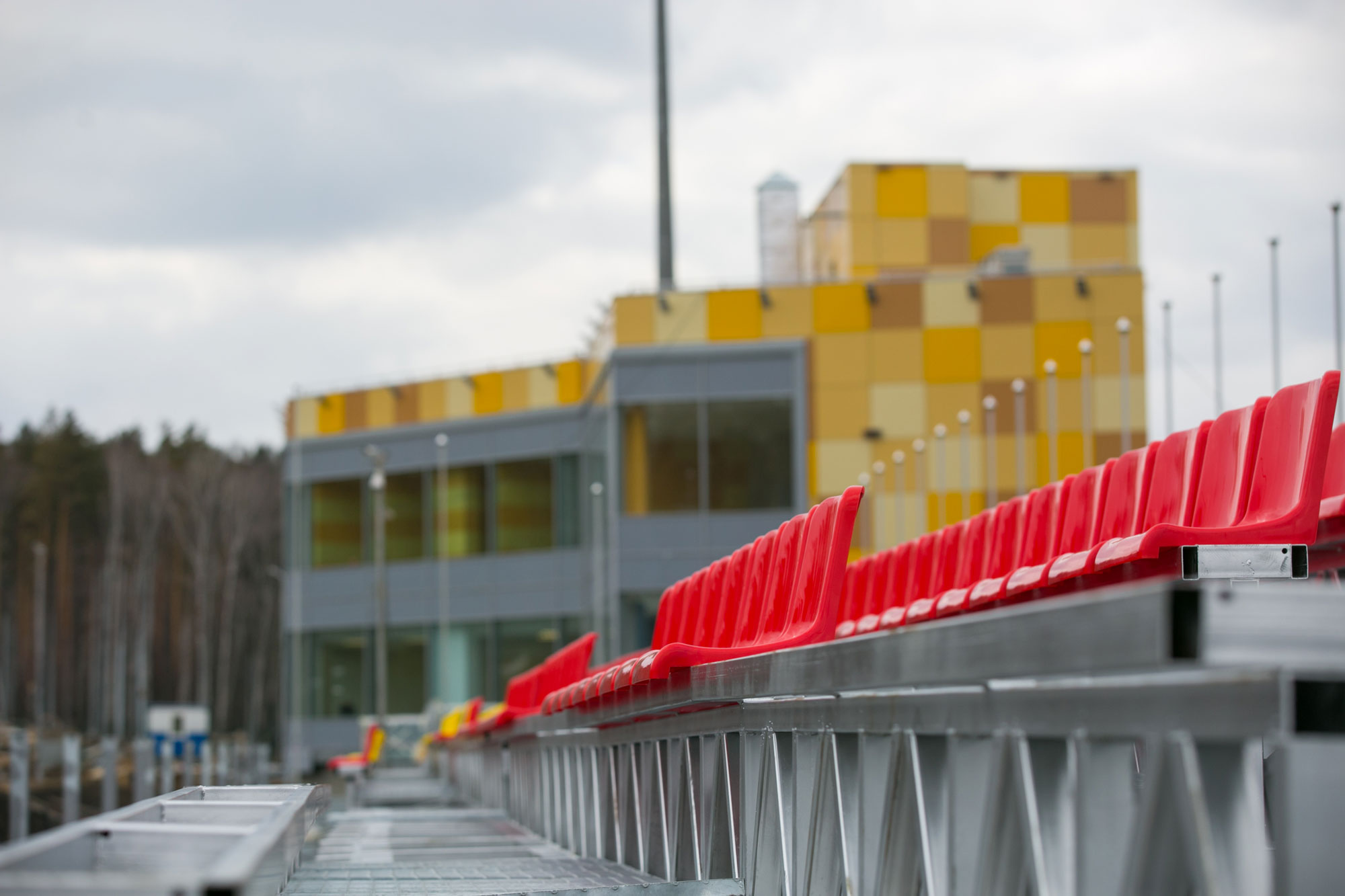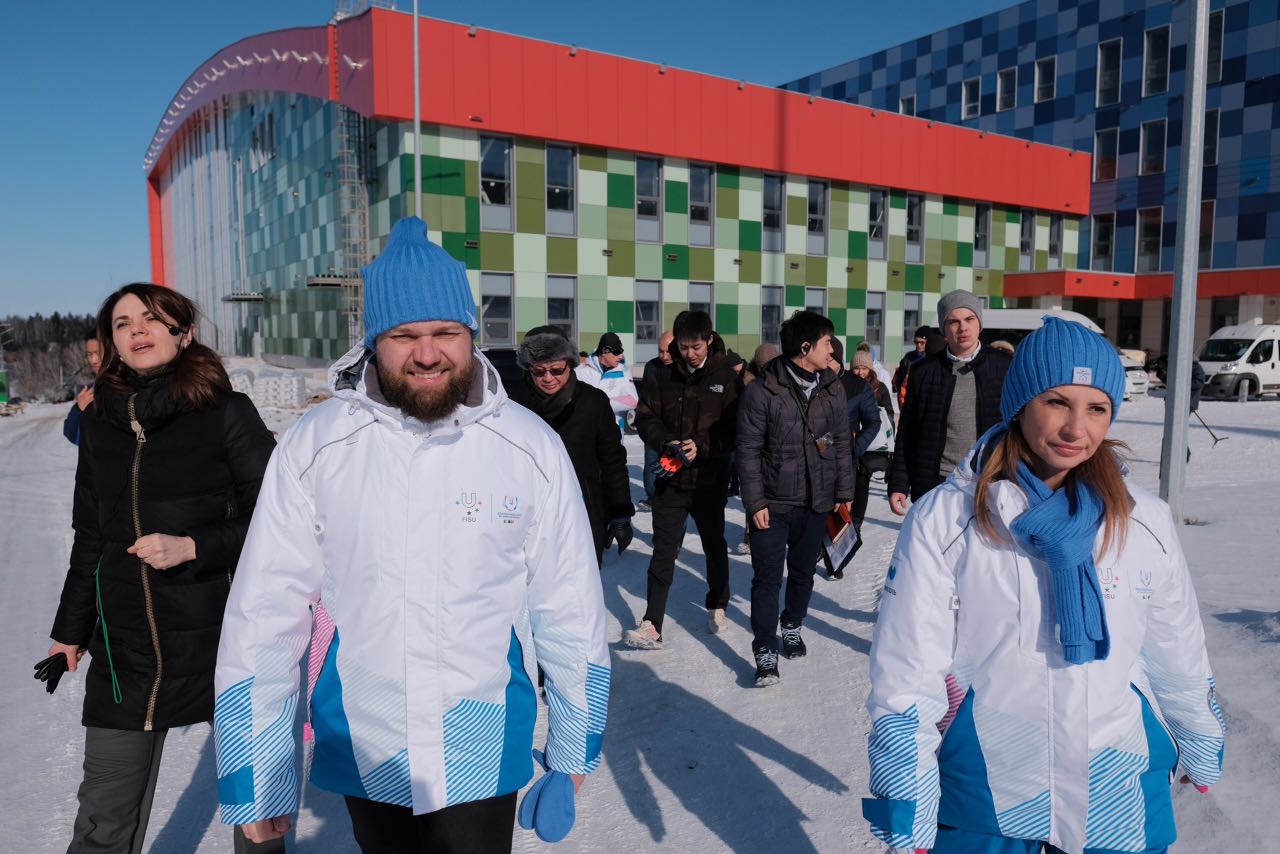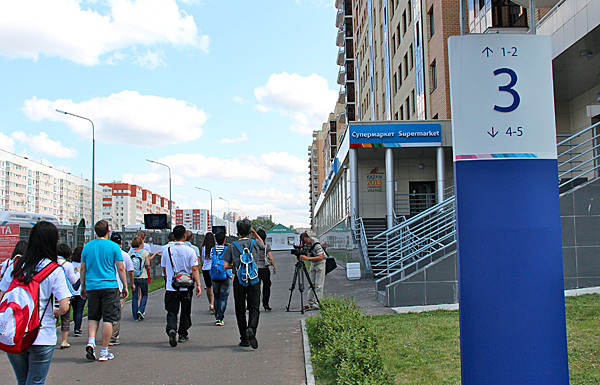
KAZAN – In preparation for the 2015 Gwangju Summer Universiade and the following 2017 Games in Chinese Taipei, representatives from both nations gathered Friday with Kazan 2013 organizing officials for a seminar about the development of the Universiade Village and the International Media Centre for the games in Kazan.
The Universiade Village, the most impressive infrastructure from the Kazan 2013 Universiade, began construction in July 2009, and officially opened on June 29th, 2013. The first hour of the seminar comprised of a presentation by Kristina Movisyan, Chief Expert of the Universiade Village, and Shen Zhen, CSU-E Athlete’s Village Expert. Ms. Movisyan detailed the security measures in place, the food halls, the leisure activities and other available facilities at the 53-hectare campus for all members of the delegations.
Ms. Movisyan made a number of suggestions to the Korean and Chinese-Taipei representatives, most importantly to start as early as possible. She described the importance of learning from previous Games. “We took into account all games held beforehand and considered Russian regulations. We have made cooking strictly forbidden because in Belgrade there was a fire. We also have fire hydrants in English and Russian language in case of an emergency,” she explained.
Before beginning the guided tour of the Universiade Village, Ms. Movisyan pointed out to take note of pedestrian and car exits and entrances, signage and security. She listed these things, in particular signage, as the most important aspects to address in the design of the Universiade Village.
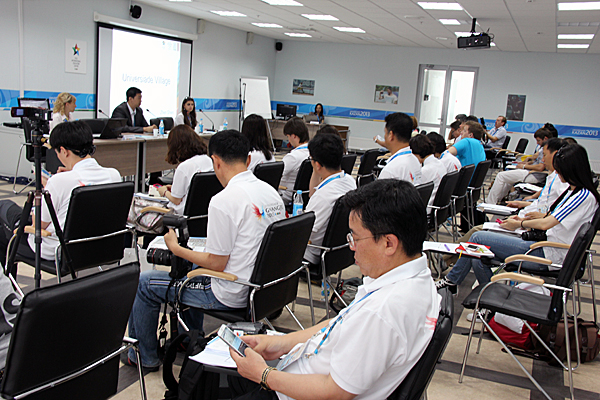
As the tour went on, the participants were informed about the most popular places within the village: the relaxation rooms and the souvenir shop. The relaxation room includes places to lie down and take a nap, table tennis and air hockey. It was highlighted that the Kazan Universiade Village was designed to ensure the most comfort for athletes and all delegation members, including ice-making machines in every building, free laundry and dry-cleaning, a beauty salon, a pharmacy and a supermarket. As the campus is large, the design includes electric car transportation for athletes and luggage, with 16 stops. It was mentioned that the dining hall is the biggest temporary construction in all of Russia.
The tour was then given a brief description of the Main International Centre and its functional areas, including auditoriums, conference halls, a religious centre, a bank and a post office. The group was also given a presentation about the partnership between UNAIDS – Joint United Nations Programme on HIV/AIDS and the International Olympic Committee, and encouraged the future Universiade hosts to enhance the role of sports in the AIDS response.
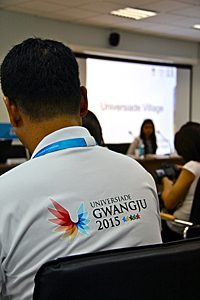 Ms. Movisyan said that the entire design process for the Universiade Village took four and a half long years.
Ms. Movisyan said that the entire design process for the Universiade Village took four and a half long years.
“It took a lot of strength, and a lot of time to make the Village look like it does now,” she said. It was outlined that temporary personnel recruitment is a core point of the organizing committee, which should be commenced immediately. They also recommend adhere strictly to the FISU minimum requirements, and to do many tests “so there are very few flaws in the Games themselves.”
Ms Movisyan recommends that all the people working at the games are well qualified, because “unexpected problems can happen.”
Jiniee Choi, an observer from the Gwangju Summer Universiade Organizing Committee, said that the Observer programme was very beneficial to the organizers for the upcoming 2015 Universiade. She said that most things here in Kazan have been successful, but that Gwangju hopes to “improve on everything overall.”
Ms. Choi also said that it will be a different feeling for the Games in Korea compared to Russia. While Russia has a very long history and beautiful monuments, Ms. Choi said Gwangju will focus on contemporary subjects like eco-friendliness and culture. Both the Chinese-Taipei and Korean Observers stated that the biggest problem they will face is lack of space. Unlike the sprawling land available in Kazan, they must build upwards.
Mr. Lee from the Chinese Taipei University Sports Federation, said as Taipei is such a busy and populated city, it will be difficult to implement a successful public transportation system for athletes and delegations like in Kazan.
“Our roads are very busy in the city,” he said. “We must figure out a way where the buses can wait because there are no big car parks or places to wait in the city like Kazan has.” The use of 97 percent refurbished competition venues in Gwangju will be one of the biggest differences from Kazan, which had 30 newly built venues for the 2013 Games.
Leigh Ferguson/FISU Young Reporter (AUS)
